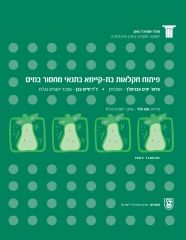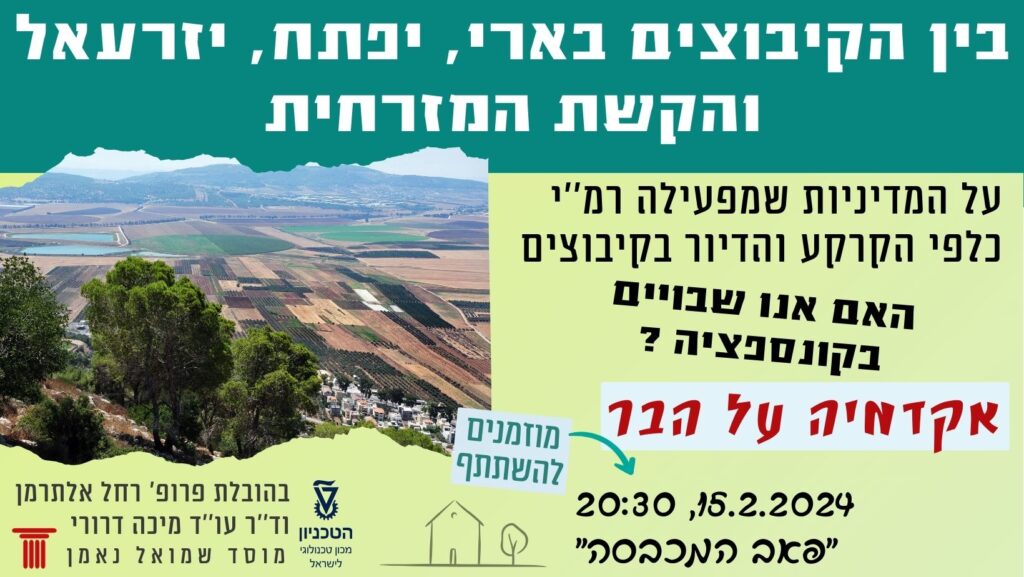The research aims to study the agriculture of Israel under sever drought conditions, and sharp raise in water prices. Agriculture is the largest consumer of water in Israel. Raising the price of water would mean that around 10% of the agricultural land in Israel would be changed from irrigated to non-irrigated land. Such change would mean reduction of 460 million NIS of the agricultural product. The study suggests alternatives for sustainable agriculture. Water should be allocated only to such agricultural fields where the benefit of using them is higher than their cost – such as some types of vegetables and fruits. In edition, it is stated that agriculture is not just an economic branch, it is a “public good” providing environmental, landscape and social benefits for the population. Allocation of water to agriculture must take in account its external benefits, based on evaluation of their economic value. A way must be found to sustain the current income of farmers, while reducing the amount of water used by agriculture, for example, by paying the farmers for the external benefits they produce. Especially in the over-populated center of Israel, agriculture should be directed to creating environmental benefits.
 / Publications / Development of Sustainable Agriculture Under Drought Conditions
/ Publications / Development of Sustainable Agriculture Under Drought Conditions











